Based on the achievements so far, in the future the parties commit to increasingly focus on large-scale research projects that can be applied in high-tech industries, primarily in such fields as health industry, biotechnology, material sciences, ICT and environmental technologies. As a key instrument of this intention, a joint call for proposals will be launched in May which, from the Hungarian side, will be financed with a budget of HUF 200 million (approx. EUR 656,000) from the NRDI Fund.
József Pálinkás stressed: ambitious goals are needed in S&T relations that is why in the future industrial research will be preferred for funding rather than simple exchange of researchers. The NRDI Office promotes such kind of relations primarily with those countries which are ranked in the forefront of a specific RDI field or countries where Hungarian expertise, technology and innovation are likely to find markets. Our relations with Korea are particularly active: a new post of a Hungarian S&T attaché in Seoul was also opened in 2017.
Deputy Minister Chang Whan Ma highlighted the results of the long lasting joint Korean-Hungarian research cooperation in the field of material sciences, chemistry and life sciences. He also expressed his satisfaction with the successful operation of the joint labs in the field of graphene and protein research and emphasized the perspectives of the project based cooperation. “The new bilateral research and innovation co-funding programme of Hungary and Korea we have just decided about is a key opportunity for the Korean researchers to build strong relations with excellent Hungarian scientists and entrepreneurs.” He expressed his confidence that the implementation of the new project based bilateral Hungarian-Korean cooperation programme will further contribute to the development of beneficial links between research organisations and enterprises of both countries and will enable them to use their scientific and technological potential more efficiently.
Jointly supported by the two governments, the Hungarian-Korean Technical Cooperation Centre (HKTCC) was established in 1992 to enhance RDI cooperation between universities, research institutions and enterprises of the two countries. Since 2010, the Hungarian Academy of Sciences and its Korean counterpart, the National Research Council of Science and Technology (NST) have contributed to jointly set up and operate five state-of-the-art and competitive Hungarian-Korean labs within Hungarian research centres, e.g. in the fields of garphene and protein research. In the recent years, the Visegrad Four (V4) states partnered with Korea in a multilateral call for proposals, while further joint research projects were also launched in the framework of a Hungarian-Korean-Austrian trilateral cooperation. There are further opportunities to exploit in cooperating under multilateral RDI platforms such as the EU’s Horizon 2020, EUREKA and EUROSTARS programmes. The ELI-ALPS laser facility in Szeged was presented to the Korean delegation by Zsolt Fülöp, envoy extraordinary. The experiments carried out in ELI-APLS may also lay the foundations for joint projects to develop new applications in medicine, biology and pharmaceutical sciences.
Bilateral cooperation relations in science and technology
Currently, Hungary has bilateral science and technology (S&T) cooperation agreements with 37 countries. These agreements form the framework of calls for proposals which mainly provide funds for international networking and exchange of researchers. Calls supporting project based industrial and RDI cooperation were first announced by the NRDI Office jointly with Israel, then India, Iran, China, Thailand, Turkey and Vietnam. Before announcing such large-scale calls designed in this new approach, the NRDI Office involves stakeholders of the domestic RDI community to assess already existing, active international cooperation relationships and scientific strengths which can serve as basis for similar projects. Backed by such information, the NRDI Office considers to initiate bilateral RDI programmes with foreign partner institutions.
Budapest, March 28, 2018
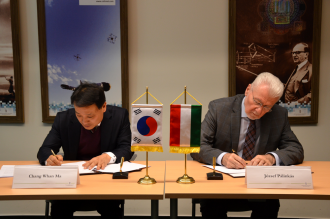 |
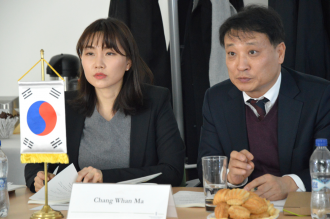 |
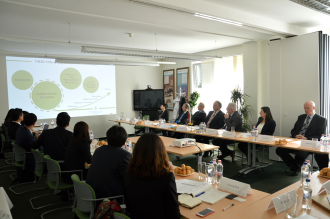 |
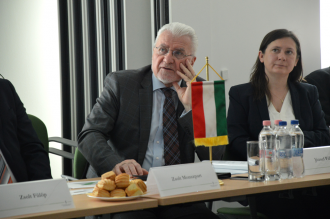 |
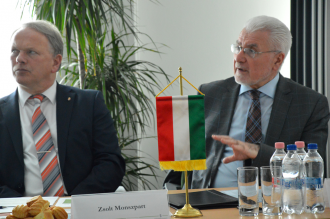 |
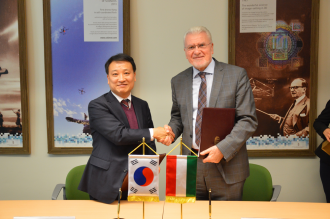 |
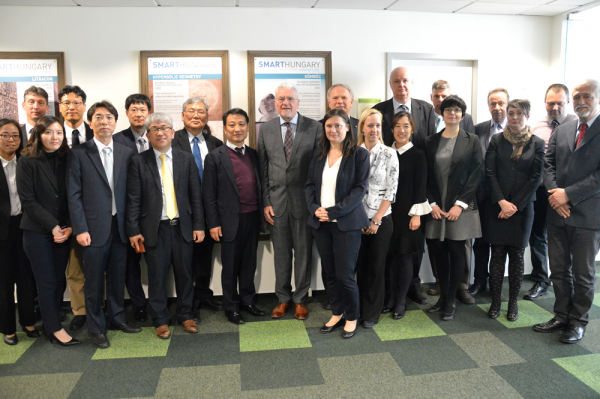 |
|






